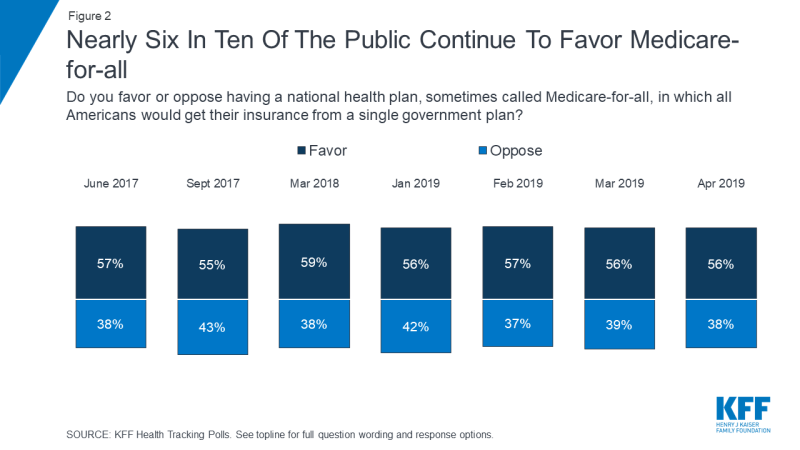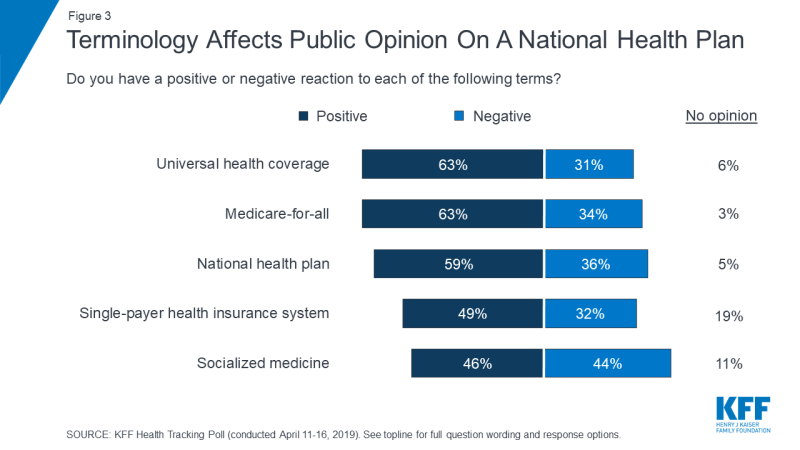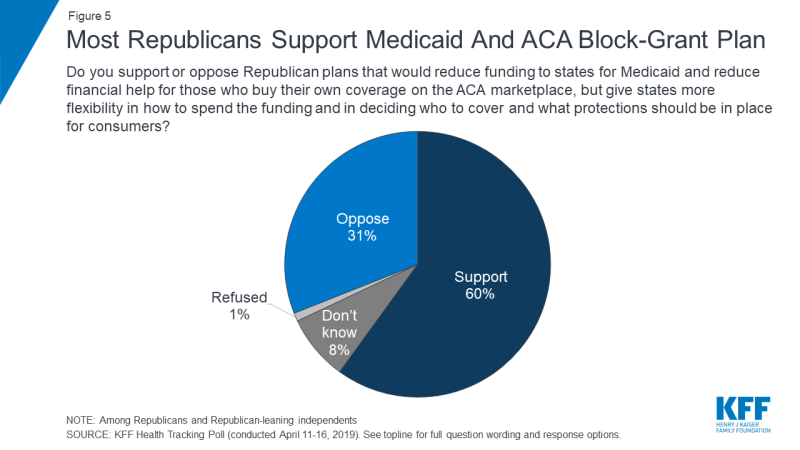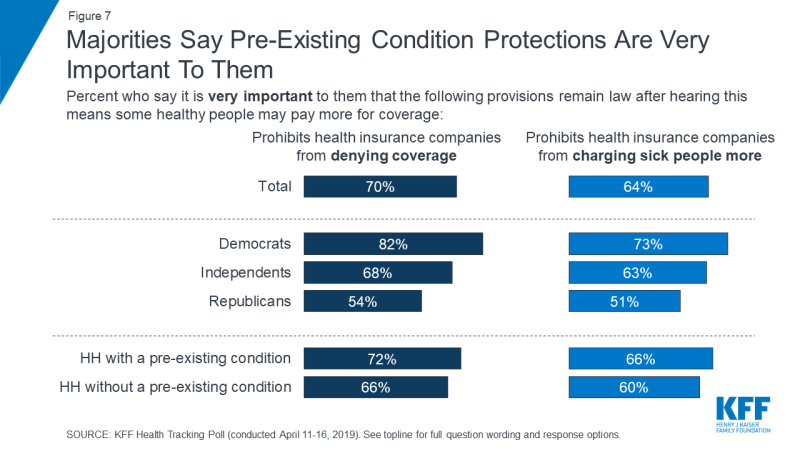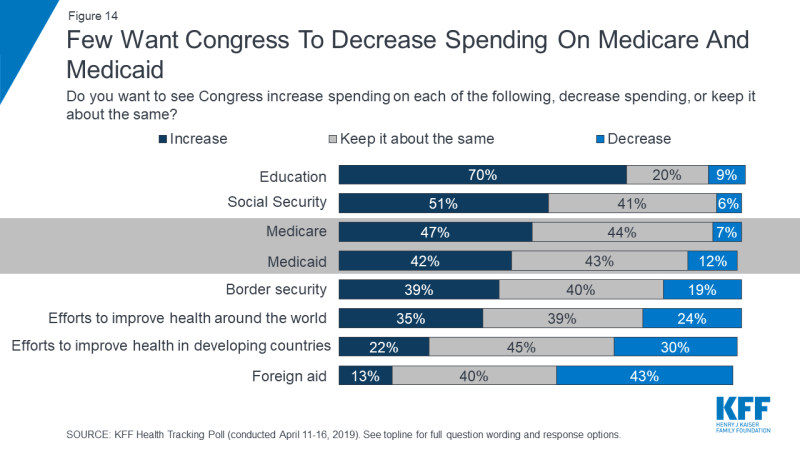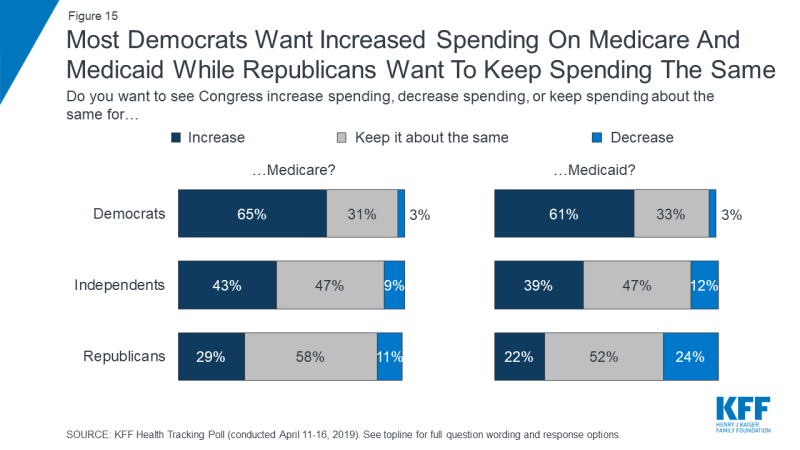KFF Health Tracking Poll – April 2019: Surprise Medical Bills and Public’s View of the Supreme Court and Continuing Protections for People With Pre-Existing Conditions
Key Findings:
- The Affordable Care Act’s (ACA) protections for people with pre-existing medical conditions continue to weigh heavily on the minds of Americans, especially in light of the ongoing legal battle on the future of the ACA. The majority of the public say they do not want to see the Supreme Court overturn either the pre-existing condition protections (68 percent) or the entire health care law (54 percent); and most – including about half of Republicans – also say it is “very important” to them that the ACA provisions protecting people with pre-existing conditions remain law even after hearing that these protections may have led to increased insurance costs for some healthy people.
- A majority of Americans also say they are worried that they or someone in their family will lose coverage or will not be able to afford coverage in the future if the Supreme Court eventually hears the case and overturns either the entire health care law or the ACA’s protections for people with pre-existing conditions.
- Addressing health care costs are on the forefront of the public’s mind when it comes to their priorities for Congress with far more Americans saying targeted actions on prescription drug costs (68 percent), protections for pre-existing conditions (64 percent), and surprise medical bills (50 percent) are the “top priority” for Congress compared to broader reforms like implementing a national Medicare-for-all plan (31 percent), or repealing and replacing the ACA (27 percent).
- In light of recent legislative activity surrounding surprise medical bills, KFF polling finds broad support across partisans for the federal government taking actions to protect patients from having to pay the cost incurred from an inadvertent out-of-network provider including during a medical emergency and for treatment by an out-of-network doctor or specialist. Partisans do disagree on who should cover the cost of the care if the government takes action. While few (5 percent) say the doctor or provider should solely be responsible for the cost of the care, the public is divided in whether the insurance company, alone, should cover the cost (43 percent) or if the insurance company and the doctor or provider should share in covering the cost (47 percent).
- This month’s KFF Health Tracking Poll continues to find a majority of the public (56 percent) favor a national Medicare-for-all plan and half holding favorable views of the ACA. About four in ten hold unfavorable views of either a national Medicare-for-all plan (38 percent) or the ACA (38 percent).
Health Care Priorities for Congress
Lowering prescription drug costs and continuing the Affordable Care Act’s (ACA) protections for people with pre-existing conditions top the public’s priorities for Congress. Nearly seven in ten Americans (68 percent), including majorities of Democrats (77 percent), Republicans (66 percent), and independents (64 percent), say lowering prescription drug costs for as many Americans as possible is a “top priority” for Congress. This is followed closely by nearly two-thirds of the public (64 percent), including eight in ten Democrats (82 percent), six in ten independents (62 percent), and half of Republicans (47 percent) who say making sure the ACA’s protections for people with pre-existing health conditions continue is a “top priority” for Congress. Fewer – but still half – say protecting people from surprise medical bills is a “top priority.” This is consistent with the January KFF Health Tracking Poll released earlier this year, which found a similar ranking of the public’s priorities for Congress.
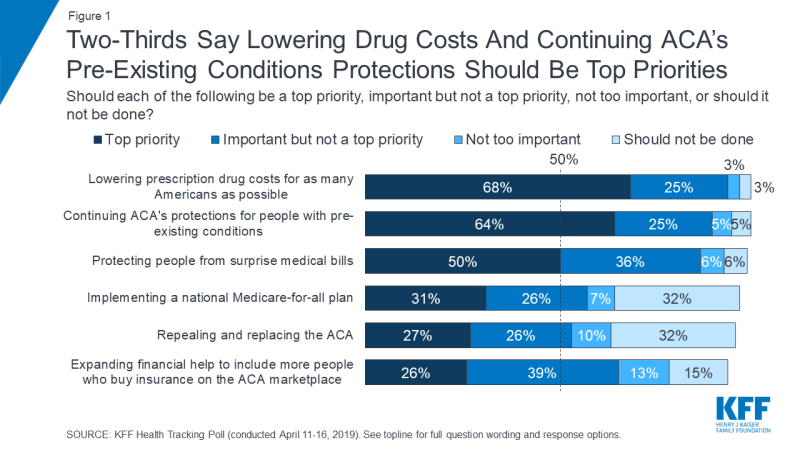
Figure 1: Two-Thirds Say Lowering Drug Costs And Continuing ACA’s Pre-Existing Conditions Protections Should Be Top Priorities
About three in ten say implementing a national Medicare-for-all plan (31 percent), repealing and replacing the ACA (27 percent), or expanding government financial help for those who buy their own coverage on the ACA marketplaces (26 percent) are top priorities for Congress. About half of Republicans say repealing and replacing the ACA is a top priority (52 percent), while a similar share of Democrats (47 percent) say implementing a national Medicare-for-all plan is a top priority.
| Table 1: Prescription Drug Costs and Pre-Existing Condition Protections Top Public’s Health Care Priorities for Congress; Democrats and Republicans Also Prioritize Partisan Ideas | ||||
| Percent who say the following is a top priority for Congress to work on: | Total | Democrats | Independents | Republicans |
| Lowering prescription drug costs for as many Americans as possible | 68% | 77% | 64% | 66% |
| Making sure the ACA’s pre-existing condition protections continue | 64 | 82 | 62 | 47 |
| Protecting people from surprise high out-of-network medical bills | 50 | 55 | 49 | 45 |
| Implementing a national Medicare-for-all plan | 31 | 47 | 26 | 14 |
| Repealing and replacing the ACA | 27 | 16 | 22 | 52 |
| Expanding government financial help for those who buy their own insurance coverage on the ACA marketplace to include more people | 26 | 36 | 23 | 18 |
The most recent KFF Health Tracking Poll continues to find that at least three-fourths of Democrats hold favorable views of the 2010 Affordable Care Act (ACA) while a majority of Republicans (77 percent) continue to hold unfavorable views of the ACA. To view partisan attitudes over time, check out our ACA interactive.
Similar to the views of the 2010 Affordable Care Act, the most recent KFF Health Tracking Poll finds the public’s support for a national health plan, or Medicare-for-all, is also basically holding steady since the 2016 presidential election, when Democratic candidate Sen. Sanders made it a hallmark of his campaign, with 56 percent of the public favoring such a proposal. See more at our KFF tracker.
This month’s tracking poll also examined whether the public’s reaction to a variety of terms used to describe the idea of expanding health insurance coverage to all Americans had changed in light of increased national attention to such proposals. The results are very similar to the November 2017 KFF Health Tracking Poll with “universal health coverage” (63 percent), “Medicare-for-all” (63 percent), and “national health plan” (59 percent) garnering the most positive reactions. Fewer report a positive association to “single payer health insurance system” (49 percent) or “socialized medicine” (46 percent).
There is some evidence that views of “Medicare-for-all” are becoming increasingly partisan. For example, there has been an uptick in the share of Democrats who say they have a “very positive” reaction to “Medicare-for-all,” up from 49 percent in 2017 to 58 percent in the most recent tracking poll. There has also been a slight uptick among Republicans who have a “very negative” reaction to the term, from 42 percent in 2017 to 51 percent in 2019.
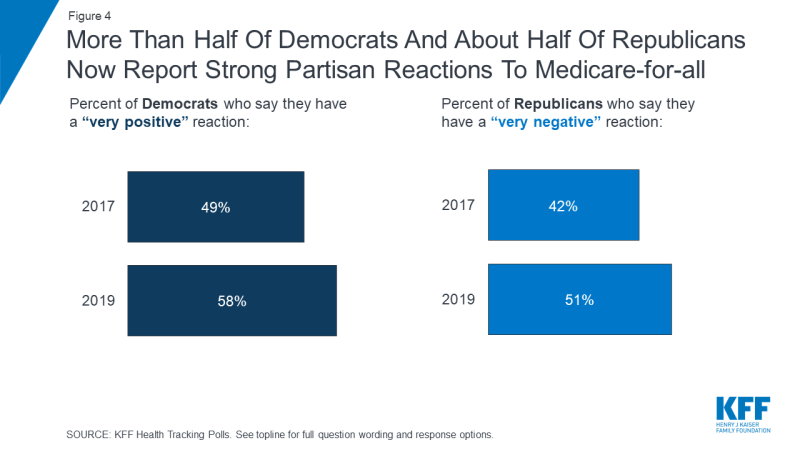
Figure 4: More Than Half Of Democrats And About Half Of Republicans Now Report Strong Partisan Reactions To Medicare-for-all
Partisan Views Of Their Party’s Health Care Agenda
This month’s tracking poll also examines partisans’ view of some congressional actions on health care and finds that both Republicans and Democrats are generally supportive of their party’s platforms.
The Graham-Cassidy proposal, first introduced by the Republican lawmakers during ACA repeal efforts in 2017, replaces funding for the ACA’s Medicaid expansion and individual insurance market subsidies with a block grant program. The proposal caps funding but also allows more state flexibility in how to spend the funding such as deciding who to cover and what protections should be in place for consumers. Overall, six in ten Republicans and Republican-leaning independents support such a proposal while about three in ten (31 percent) oppose.
On the other side of the aisle, this month’s tracking poll finds Democrats and Democratic-leaning independents similarly supporting their party’s leaders on health care. About half say they want Democrats in Congress to focus their efforts on improving and protecting the ACA (52 percent) while a smaller share, but still four in ten (39 percent), say they want Democrats in Congress to focus on passing a national Medicare-for-all plan. This is a slight shift from last month, but could be due to the increased media coverage of the Trump administration’s threats to the ACA during the past few weeks.
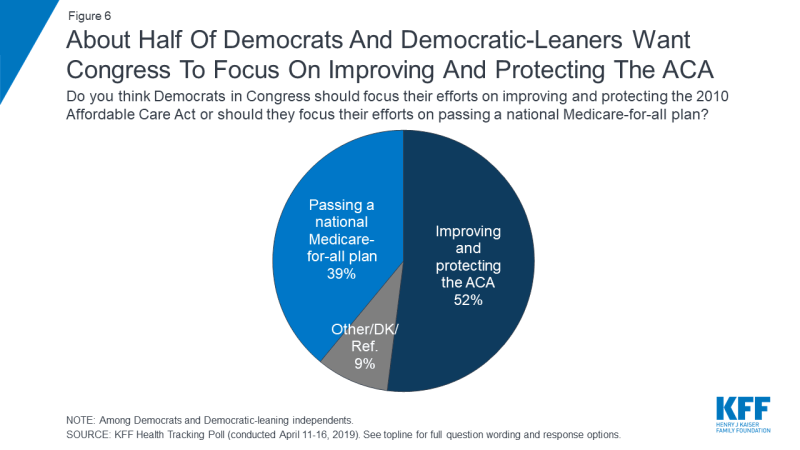
Figure 6: About Half Of Democrats And Democratic-Leaners Want Congress To Focus On Improving And Protecting The ACA
Pre-Existing Condition Protections
On December 14, 2018, a federal district court judge in Texas issued a ruling challenging the future of the 2010 Affordable Care Act (ACA).The judge sided with Republican state attorneys general and ruled that, since the 2017 tax bill passed by Congress zeroed out the penalty for not having health insurance, the ACA is invalid. Last month, the Trump administration filed a brief stating that the administration supports the federal judge’s ruling that all of the ACA is invalid. Previously, the Trump administration had stated as part of the lawsuit known as Texas v. United States, it will no longer defend the ACA’s protections for people with pre-existing medical conditions.
The two most high-profile ACA protections for people with pre-existing conditions are that the law prohibits insurance companies from denying coverage based on a person’s medical history (known as guaranteed issue), and the law prohibits insurance companies from charging those with pre-existing conditions more for coverage (known as community rating). The majority of the public say it is “very important” to them that these two ACA provisions protecting those with pre-existing conditions remain law even after hearing that these protections may have led to increased insurance costs for some healthy people. This includes majorities of all partisans saying it is “very important” that these protections remain law as well among those who live in a household without a pre-existing medical condition – the population that may be paying more for coverage.
Overall, seven in ten say it is “very important” to them that the provision that prohibits health insurance companies from denying coverage because of a person’s medical history remains law. An additional one-fifth (19 percent) say it is “somewhat important” this provision remains law. Similarly, about two-thirds (64 percent) say it is “very important” that the provision that prohibits health insurance companies from charging sick people more remains law, while an additional one in five (22 percent) say it is “somewhat important.”
This month marks a slight uptick among the share of Republicans who say it is “very important” to them that these provisions remain law even if this means some healthy people may pay more for coverage. The share of Republicans who say it is “very important” to them that guaranteed issue remains law is up seven percentage points, from 47 percent last year to 54 percent. Similarly, the share of Republicans who say it is “very important” that the prohibiting of community rating remains law is up 10 percentage points, from 41 percent to 51 percent.
A larger share of the public say they do not want to see the Supreme Court overturn the ACA’s pre-existing condition protections (68 percent) than say they do not want the Supreme Court to overturn the entire 2010 health care law (54 percent), but still a majority say they do not want this to happen. While a majority of Republicans want the Supreme Court to overturn the ACA, less than half (44 percent) say they want to see the ACA’s protections for people with pre-existing conditions overturned.
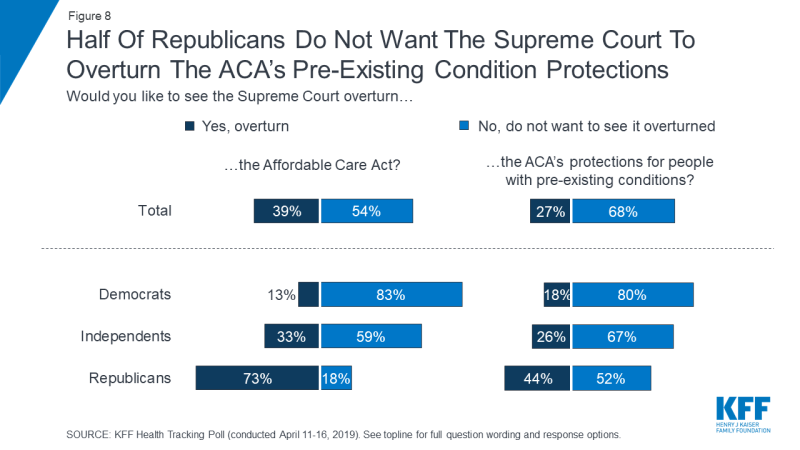
Figure 8: Half Of Republicans Do Not Want The Supreme Court To Overturn The ACA’s Pre-Existing Condition Protections
A majority of the public say they are worried (either “very worried” or “somewhat worried”) that they or someone in their family will lose coverage or will not be able to afford coverage in the future if the Supreme Court eventually hears the case and overturns either the entire health care law or the ACA’s protections for people with pre-existing conditions. Nearly half (46 percent) are “very worried” they won’t be able to afford coverage if the ACA is overturned or if the pre-existing condition protections are overturned (44 percent). Slightly fewer – but still about four in ten – are “very worried” they would lose coverage if either the ACA or the protections for people with pre-existing condition protections are overturned by the Supreme Court (39 percent, both).
| Table 2: Majorities Are Worried They Would Lose Coverage Or Be Unable To Afford Coverage In The Future If The Supreme Court Overturns ACA Or Protections For People With Pre-existing Conditions | ||||
| How worried are you that you or someone in your family will…if the Supreme Court overturns the entire health care law? | Very worried | Somewhat worried | Not too worried | Not at all worried |
| …not be able to afford coverage in the future… | 46 | 17 | 13 | 23 |
| …lose coverage in the future… | 39 | 17 | 14 | 30 |
| How worried are you that you or someone in your family will…if the Supreme Court overturns the ACA protections for people with pre-existing conditions? | Very worried | Somewhat worried | Not too worried | Not at all worried |
| …not be able to afford coverage in the future… | 44 | 18 | 16 | 21 |
| …lose coverage in the future… | 39 | 18 | 16 | 26 |
Individuals in households with a pre-existing condition are more likely than their counterparts to say they are worried about affording coverage or losing coverage if either the entire ACA or the protections for people with pre-existing conditions are overturned. Across all measures, about six in ten of those living in households with a pre-existing condition say they are worried about their coverage compared to about half of those living in households without a pre-existing condition.
While the Texas v. United States lawsuit is still making its way through the U.S. court system, the Trump administration has passed new rules promoting the sale of short-term health insurance policies, which generally have lower premiums compared to ACA-compliant plans but are not required to cover the same benefits or people with pre-existing conditions. While it is still unclear how many people purchased short-term plans during this year’s open-enrollment period, KFF polling finds that the majority of the public wants the federal government to require insurance companies to include a certain set of benefits as well as coverage for pre-existing conditions.
Majorities, across party identification, think the federal government should require health insurance companies to cover a certain set of benefits and cover pre-existing conditions (67 percent) rather than allow them to sell short-term plans that cost significantly less but provide fewer benefits and do not cover some pre-existing conditions (26 percent). Majorities of Democrats (83 percent), independents (62 percent), and Republicans (53 percent) think the federal government should require health insurance plans to cover a certain set of benefits and cover pre-existing conditions.
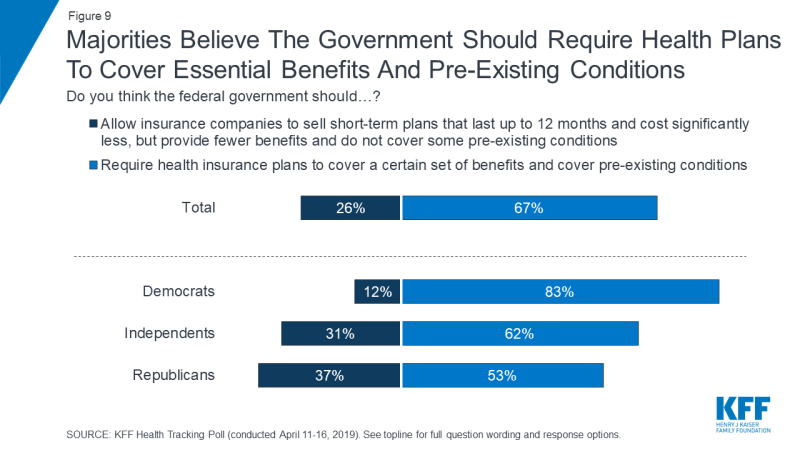
Figure 9: Majorities Believe The Government Should Require Health Plans To Cover Essential Benefits And Pre-Existing Conditions
Surprise Medical Bills
While many health care issues have policymakers divided, both President Trump and Congress have recently announced plans to tackle “surprise medical bills.” The term, “surprise medical bills,” describes charges from when an insured individual inadvertently receives care from an out-of-network provider.1 Last summer, KFF polling found that two-thirds of Americans said they were either “very worried” or “somewhat worried” about being able to afford their or a family member’s unexpected medical bill. This month’s KFF Health Tracking Poll, perhaps unsurprisingly, finds broad support across partisans for the federal government taking actions to protect patients from having to pay the cost incurred from an inadvertent out-of-network provider. At least three-fourths of the public say the federal government should take action to protect patients from covering the cost of care when the experience the following:
- they are taken to an emergency room by an out-of-network ambulance (78 percent),
- they are taken to an out-of-network emergency room during a medical emergency (78 percent), or
- they are at an in-network hospital but treated by an out-of-network doctor or specialist (76 percent).
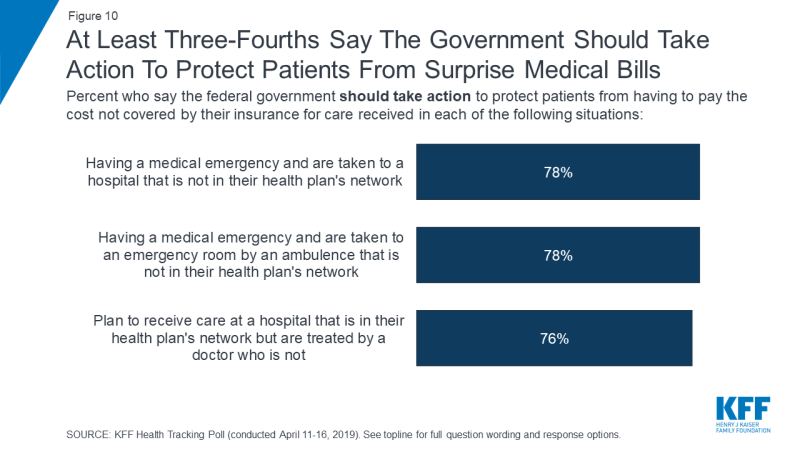
Figure 10: At Least Three-Fourths Say The Government Should Take Action To Protect Patients From Surprise Medical Bills
Majorities of Democrats, independents, and Republicans say the federal government should take action to protect patients from paying the cost of care in each of these instances. A larger share of Democrats and independents than Republicans say the federal government should take action to protect patients from each of the examples provided, but still a majority of Republicans say the federal government should take action.
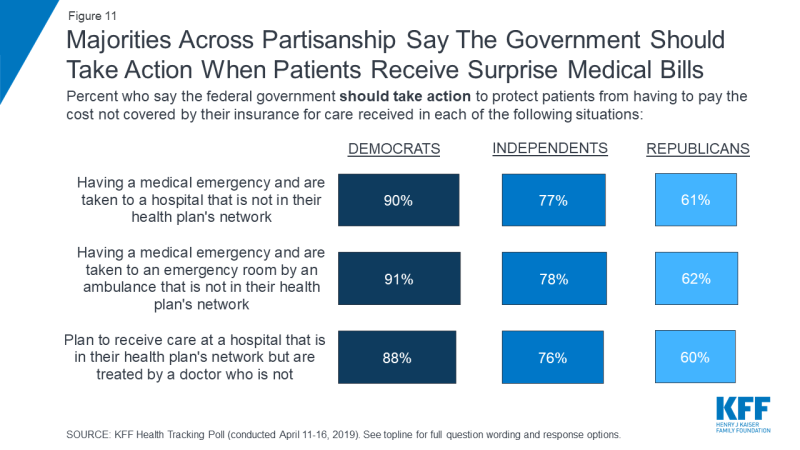
Figure 11: Those Reporting Loneliness Express Dissatisfaction with the Number of Meaningful Personal Connections They Have
If the government takes actions to protect patients from having to pay for the cost of their care, there is not a consensus on whether insurers, or providers, or both, should cover the cost. Few say the doctor or provider should solely be responsible for the cost of the care but the public are divided in whether the insurance company, alone, should cover the cost or if the insurance company and the doctor or provider should share in covering the cost. About half say both the provider and the insurance company should cover the cost of care (47 percent) while a similar share say the insurance company, alone, should cover the cost of care (43 percent).
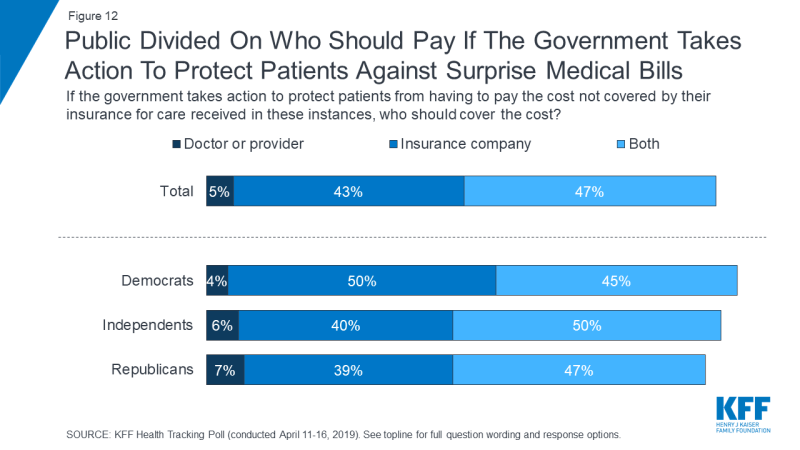
Figure 12: Public Divided On Who Should Pay If The Government Takes Action To Protect Patients Against Surprise Medical Bills
Four in ten (41 percent) insured adults ages 18-64 say there has been a time in the past two years when they or a family member received care from a doctor, hospital, or lab that they thought was covered and their health plan didn’t cover the bill at all or covered less than they expected. For many of these families (one in five insured adults ages 18-64), this surprise bill was related to care received from an out-of-network provider.2
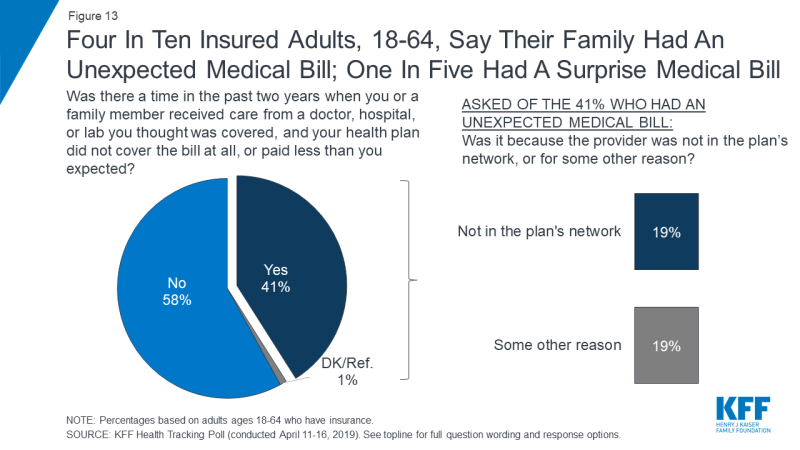
Figure 13: Four In Ten Insured Adults, 18-64, Say Their Family Had An Unexpected Medical Bill; One In Five Had A Surprise Medical Bill
Health Care in President Trump’s Budget Proposal
In March 2019, the Trump administration released their latest budget proposal, which included cuts to both Medicare and Medicaid as well as stated support for legislation known as the “Graham-Cassidy proposal.”
This month’s tracking poll finds few Americans wanting to see Congress “decrease spending” on either Medicare (7 percent) or Medicaid (12 percent), with at least four in ten saying they want to see Congress “increase spending” on each of these (47 percent and 42 percent, respectively).
There are strong partisan differences with a majority of Democrats wanting Congress to “increase spending” on Medicare and Medicaid (65 percent and 61 percent, respectively), while most Republicans want to see spending levels “stay about the same” (58 percent and 52 percent, respectively). Independents are divided between wanting Congress to “increase spending” and “keep spending about the same.”

